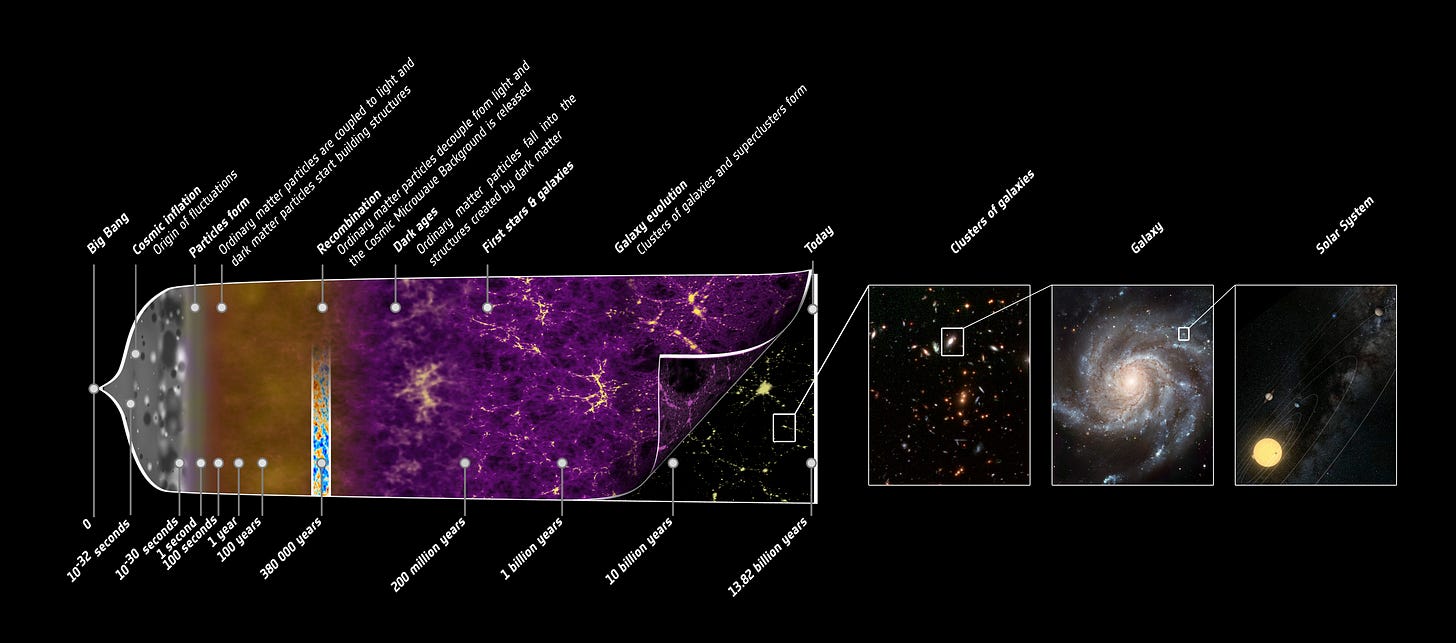A mental model education
Based off a previous #tweetstorm.
See: So Bill Gates Has This Idea for a History Class . . . by Andrew Ross Sorkin. Some relevant quotes:
Christian's aim was not to offer discrete accounts of each period so much as to integrate them all into vertiginous conceptual narratives, sweeping through billions of years in the span of a single semester. . . . In the worldview of “Big History,” a discussion about the formation of stars cannot help including Einstein and the hydrogen bomb; a lesson on the rise of life will find its way to Jane Goodall and Dian Fossey.
"Most kids experience school as one damn course after another; there’s nothing to build connections between the courses that they take," says Bob Bain.
"This course is a fundamental shift in how you deliver something. But there’s so many factors in American education that work against it."
If any of this interests you, check out David Christian's Big History Project and watch his TED talk The history of our world in 18 minutes.
Christian's view of teaching is what I call a mental models approach that weaves narratives from all disciplines. It's not only more interesting, but a more accurate portrayal.
Unfortunately, it is hard to introduce this into current curriculum. There are bureaucracies and "kingdoms" to protect and people set in their ways.
The easiest way is to build a new eduction system from ground up: rethink everything including:
The concept of "classes" and the compartmentalization of subjects (aka the mental model approach).
Scheduling — length and timing of the school day, length of the school year, a rigid "period" schedule vs. a more free-flowing approach...
Grade levels — why should kids born within a defined 365 day period be taught together? How could this be adjusted?
Range of subjects — what else should be taught other than the typical math, science, language, history?
Self-motivation policy — is homework useful? What should students do outside of class? How much should the school be involved in this?
. . .
There are tools that aid this kind of learning, both in and out of class. Big History is one. I believe something like Atlastory, a project I started, is another.



